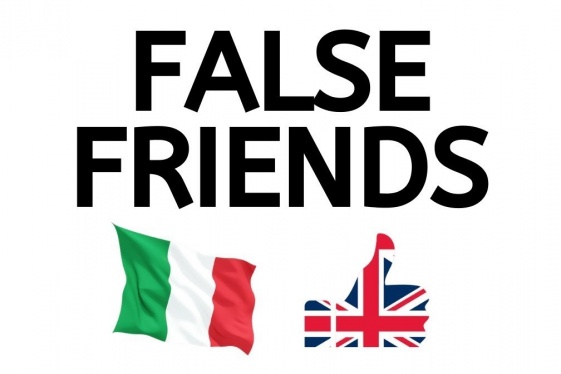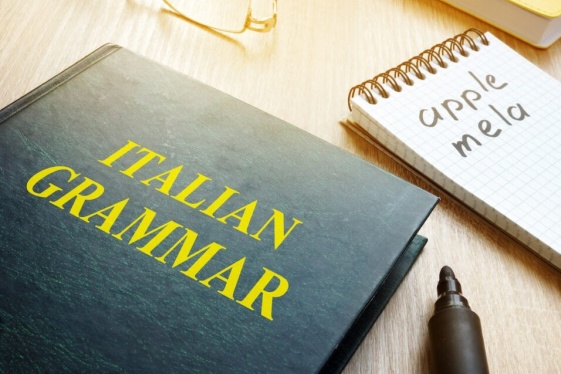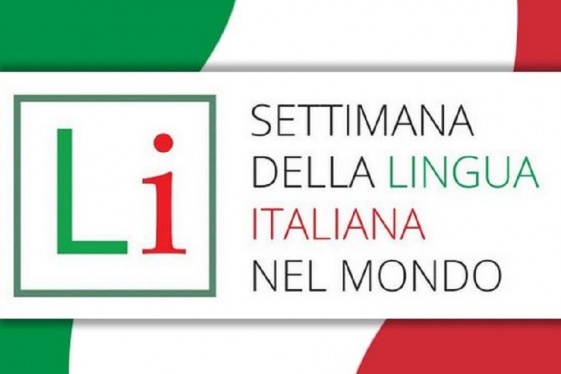
Giulia Casati
Giulia was born and raised in the North of Italy near Lake Como. After high school, she moved to the United States where she was an au pair and studied Liberal Arts at Essex County College. Then, she returned to Italy and continued her studies in Translation at the Civica Scuola Altiero Spinelli for translators and interpreters in Milan. She’s a language enthusiast, English and Italian in particular, she loves cooking, reading and growing plants.
Italian language: Don’t Trust Parenti
This month I want to approach a topic we always hear about and even learn about, but when it comes to actually putting it into practice, we all fall for it – false friends! Let’s first review what these false friends are. False friends are those words that in Italian sound or look close to an English word, make us think that they mean the same thin...
Italian language: Italiano a Capodanno, italiano tutto l’anno
Hello and happy 2023! The new year has started and we are all busy making our buoni propositi – new year’s resolutions. This month, I’ll take advantage of the new year to show some expressions – and superstitions connected to them! – Italians use in this occasion. Let’s see some! Probably the most common expression is anno nuovo, vita nuova – new y...
Italian language: Un bianco Natale, a white Christmas
Since the holidays are approaching, and winter along with them, I thought it would be a good idea to discuss the color white. Since we are all always hoping for a white Christmas, snow-covered beautiful landscapes, let’s talk about Italian expressions with the color “white.” When talking about white and snow, most Italian cannot help but think abo...
Italian language: Ask Me and Trust me
Ciao! Today’s grammar topic is verbs and prepositions. In particular, I’ll be focusing on common mistakes English speakers make while speaking Italian due to the different ways the two language use prepositions (but this is true also for Italians when speaking English!). Let’s take a look! One of the mistakes I always hear has to do with the verb...
Italian language: SLIM, L’italiano e I giovani. Come scusa? Non ti followo
It’s October and once again it’s time for the Settimana della lingua italiana nel mondo, the Week of Italian Language in the World. The Settimana della lingua italiana nel mondo is a worldwide event that takes place every year and has the goal of promoting the Italian language abroad. It’s organized by all the major institutions for the Italian lan...
Italian language: Kings and Queens
A few days ago, we’ve witnessed an historical event: the death of Queen Elizabeth II. Whether we are monarchists or not, the death of the longest-reigning monarch in British history holds great importance worldwide. This month I decided to honor this monumental event with some vocabulary related to the topic. First of all, let’s see a few basic ter...
Italian language: Luca Serianni
This month, I would like to remember a great linguist, philologist and historian of the Italian language that has suddenly passed away last month, Luca Serianni. He was an honorary member of the Casa di Dante in Rome, an academic of the Accademia della Crusca (an association that gathers linguists and philologists of the Italian language) and the A...
Italian language: Names of months in Italian - part 2
Hello everyone! Summer has finally come, July has begun, and we are ready to continue learning about the months in Italian. Last we left off, we ended with giugno, so it is now time to learn the remaining six months. Let’s start with July, luglio. During Roman time, luglio was originally called quintilis, but it was changed to Iūlius to honor Juli...
Italian language: “What Can I Say Except ‘You’re Welcome’?”
Hello dear Italian enthusiasts, today I want to talk about something simple, that sometimes is looked over: how to respond to a grazie. It’s such a simple and common part of the speech, however, it is often dismissed with a simple bookish answer and people get confused when they first encounter daily Italian responses. Let’s take a look. The first...
Italian language: I Finally Understood, Anche io!
And we’re back with our grammar lesson. Today we are going to look at specific expressions, in particular the difference in use between anche io and anche a me and anche tu and anche a te. Let’s go! I have to take first a step back and take a look at what io, tu, me and te are. Both io and me refer to the pronoun “I.” Io is the English equivalent o...
Italian language: Happy as an Easter!
This month we’ve celebrated Easter, so I couldn’t help but to talk about it! Of course, I’ll give you a linguistic interpretation, so this month we’ll talk about Easter in the Italian language. Let’s take a look. After what feels like a very long quaresima, “Lent,” full of sacrifices and penitence, Pasqua, “Easter,” finally comes and brings a lot o...
Italian language: Names of months in Italian - part 1
Hello everyone. This month we are going to review the names of the months in Italian. But to make it a little more fun I would like to talk a bit about where they come from and what they mean. Why did I decide to do it now that it is already March? Simple, because March used to be the first month of the year. As usual, I’ve been using as reference...














